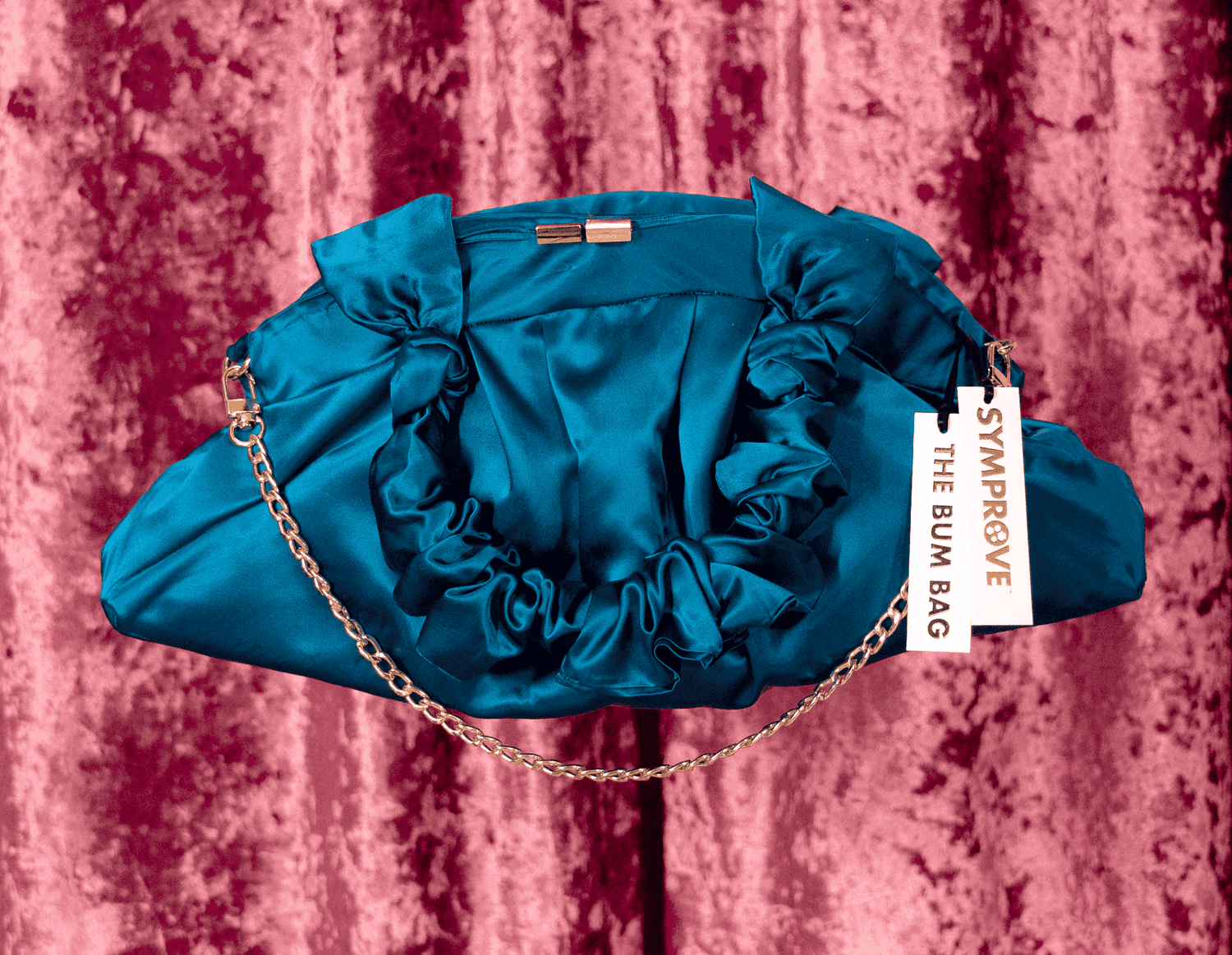Has the thought of Christmas party season got your guts in a twist? Meet The Bum Bag, your new party hero, packed with everything you’ll need to get you through. Infinite loo roll for that emergency yule log. Pooey pourri to sleigh those nasty smells. And of course, reserve knickers, a Christmas miracle when the sprouts hit. We’ve always got you covered.
BUT WAIT! THIS IS NOT A REAL PRODUCT! Because you shouldn’t have to go this far.
Find out how to help your gut thrive this festive season with Specialist Gastroenterology Dietitian Dr Sammie Gill’s guide.
8 tips to stay gut happy this Christmas
1. Prioritise ‘you’ time
With it being go-go-go over the holidays, it’s not always easy to set aside down time. But don’t overcommit yourself. Give the gut-brain axis the attention it deserves and schedule some relaxation. Why not block out a couple of days in your diary for a long countryside walk, some gentle exercise (yoga, tai chi, swimming), curling up on the sofa with a good book or film, or spending some time in the kitchen listening to music and batch cooking all those leftovers! Whatever works for you.2. Have emergency meds close to hand
For peace of mind, whether it be anti-diarrheal, laxatives or antispasmodics, have them close by just in case you need them.3. Be wise with alcohol choices
Drink but think! Alcohol is an irritant to the gut and can be problematic, particularly if you have gut issues. Over the festive break, swap out strong beers with a lower-strength alternatives, opt for smaller sizes (bottles instead of pints), choose spritzers, go for single measures instead of doubles, try a festive mocktail and alternate with alcoholic ones, try non-alcoholic beer and wine, and choose your alcohol-free days around the festive period and stick to them.Remember, the occasional glass of red wine is thought to be beneficial for gut health because of its polyphenol content!
4.…and caffeine
Caffeine can jolt the gut into action by increasing motility – it is a stimulant after all. If you know caffeine causes chaos with your gut, swap out caffeinated with decaffeinated, or choose other hot drinks instead like fruit teas, hot chocolate, or malty drinks.Despite popular belief, caffeinated drinks (e.g. tea and coffee) are not dehydrating – they actually contribute to our fluid requirements throughout the day, if you stay within reasonable limits. Although there is wide variation in sensitivity to caffeine, recommendations for caffeine in the UK are up to 400mg per day (equating to 4-6 cups of tea or 4 cups of coffee).
5. Steer clear of other potential triggers…
Everyone is very different in how they respond to food, though there are some other common triggers (beyond alcohol and caffeine), particularly if you have a sensitive gut.Spicy food: if spicy food is a trigger, try adding flavourful herbs and spices without the heat. Adjust how much spice you add to your meals depending on your tolerance. If you’re using chillies, remove the seeds and white pith beforehand.
High fat foods: if high fat foods are a trigger, why not opt for the lower fat alternatives? Go for a dollop of single cream instead of double cream or try reduced fat cheese with your crackers. Boil and steam vegetables/potatoes instead of frying. With meats, cut the excess fat off and grill. Remember to watch your portion size too.
6. If in doubt, swap it out
Don’t feel you need to restrict your choices too much. There is usually an alternative to a trigger food. For example, if garlic or onion grate on you, swap for garlic-infused oil, the green part of spring onion or leeks, chives, asafoetida powder (hing), or garlic scape powder. If you struggle with wheat-based foods, swap for a corn, spelt, oats or rice. If you struggle with lactose, swap for harder cheeses such as cheddar, Swiss, or parmesan. If you’re not sure, keeping a food/fluid and symptom diary for 1-2 weeks can help tease out patterns and trends.7. Practice mindful eating
It’s the time of year where there seems to be an endless supply of food. It can be easy to indulge, easy to overload your plate and easy to eat just that little bit too much. This can make us feel uncomfortably full and trigger unwanted gut symptoms - eating large volumes is a lot for your gut to handle in one go.We often eat on ‘auto pilot’, and particularly during the holidays, there can be lots of distractions and multitasking. Mindful eating is eating with awareness. It involves listening to your body signals on hunger, cravings, and fullness.
Remember, it takes around 20 minutes from the time you start eating for your gut to feedback fullness signals to the brain.
Simple tips include:
• Chew your food well – ideally 10-20 chews per mouthful.
• Be a smart shopper – write a list and stick to it!
• Don’t ‘save’ yourself for that huge dinner. If we’re over-hungry, we’re more likely to overeat.
• Limit distractions – switch off the TV and put your phone down. Put your knife and fork down between each mouthful to pace yourself.
8. Try and stick to your regular routine
Your gut likes consistency. If you play havoc with its routine, it’s more likely to play havoc with you. In fact, did you know that your gut microbes sync with your body clock (circadian rhythm), so any sudden shifts in your normal sleep-wake cycle can result in shifts in your microbiome too?Although it can be hard during the holidays, try and stick to a regular schedule. Eat at the same as you usually do. Try to avoid eating late at night – if you do, it means you’re more likely to be digesting that meal lying down. This can lead to symptoms such as acid reflux.
Prioritise quality and quantity of sleep – aim for 7-9 hours per night, keep timings consistent (similar sleep and wake time), limit screen use in the few hours before bed and keep the room cool at night to mimic the drop in body temperature.
Looking for more? Dig into these dietitian-approved Christmas swaps to boost your 'biome.






